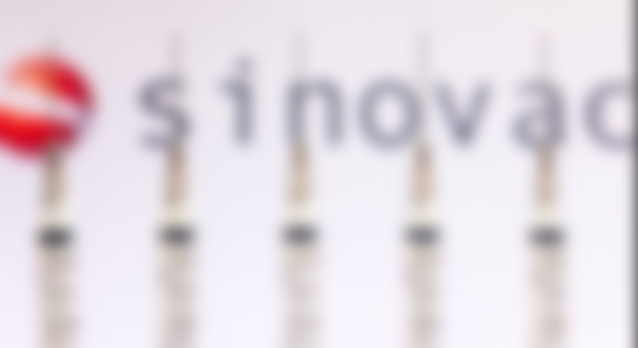Before making a decision about vaccination, I think it is good to know the place and about the vaccines that are available or are expected to be available soon. The following vaccines are currently on the market, or are approaching it:
RNA vaccines

Pfizer-BioNTech and Moderna have released the first vaccines that use state-of-the-art RNA technology. These vaccines contain small balls of fat. I will explain in the simplest way how they work: In the center is a drop of salt water in which RNA molecules float. When that drop enters the body, our cells "swallow" it. RNA is destroyed after a couple of hours to a few days, but in the meantime it causes our cell to produce several viral proteins. It acts to our immune system as if that cell is infected with a virus, and it raises an alarm, and starts making antibodies. This is important because when the real virus reaches the body, the immune system already has a ready response, and is easily defended.
Does the RNA vaccine change DNA !? NO, this is not "genetic therapy," and it is absolutely physically impossible for that RNA to be "embedded in the genome" or any of the other conspiracy theories and inaccurate intimidation circulating on the Internet.
The effectiveness of both vaccines is over 95%. For Pfizer-BioNTech we also have very detailed safety data (sources 1.2 - linked at the end of the text). Their study compared 21,000 people who received the vaccine with a control group of 21,000 people who received an injection of saline instead of the vaccine.
After the distribution of the vaccine began in England, two people with extremely severe allergies got a rash and difficulty breathing after the vaccination. Both recovered immediately, as soon as they were given antihistamines (anti-allergy drugs). Not to be confused, these are people who always have to carry an “adrenaline pen,” an injection they can give themselves on the spot if any allergies make it difficult for them to breathe, so this is not surprising.
For people with extremely severe allergic reactions, a warning has been added that they must tell their doctor their history of allergies and that they most likely should not receive the vaccine. This would be the case with almost every vaccine.
Adenovirus vaccines

AstraZeneca and the Russian Gamaleja vaccine (Sputnik) use a different approach. Both vaccines use adenoviruses, a type of virus that causes generally mild illness in humans. Normal contents are expelled from these adenoviruses, so they cannot reproduce, and when they infect a human cell, they produce only pieces of corona virus proteins in it. The process is as follows: with the vaccine, the adenovirus enters the body, causes a local infection, and alarms the immune system - which then comes and produces antibodies to attack those parts of the corona virus. Later, in the case of a real corona virus infection, the immune system already knows how to recognize it.
The big problem with vaccines like this is that all people have been exposed to various adenoviruses since childhood, so we all have at least partial resistance. Therefore, our immune system can destroy part of the virus from the vaccine before they can make that local infection (which thus prevents the development of immunity to the corona virus). Also, this vaccine is produced much more slowly than the RNA vaccine, and a much smaller number of doses will be available.
Overall, the results show very high safety, but less efficiency than would be ideal. In any case, they prevent hospitalizations and severe forms of the disease, even if it does not prevent the infection itself.
Several other companies are also developing adenovirus vaccines. A potentially big player will be Johnson & Johnson, whose research is approaching the stage where the first significant data is expected. The data from the first stages look good, approximately similar to the above vaccines (link 4). Several other companies from various countries are in the race with their versions of the adenovirus vaccine (CanSino, Reithera, Merck (), but with little data that we can see for now. Vaxart has developed a type of adenovirus vaccine that is taken in tablet form, and produces an interesting type of immunity in the gut that promises to be especially strong and long-lasting; however, it has little chance of entering the market before the end of 2021.
Classic vaccines

The Chinese company Sinovac is currently in the third phase of research with the classic vaccine, which is based on the killed virus. These are "old-fashioned" vaccines, similar to Torlak's that were given in our country. They work as follows: First, a large amount of virus is produced in the cell culture, then the virus is killed, and the killed parts are then given as part of the vaccine, along with adjuvants that alert the immune system. This is old and proven technology, but it is also "dirty". The problem is that antibodies are produced against various pieces of the killed virus, and the results are less predictable than with newer technologies.
There is not enough data for this vaccine yet. Preliminary data have not been published yet, although it has been claimed in the press that the vaccine has an 86% effectiveness in protecting against the virus infection, and that there have been no major side effects. The big disadvantage of these classic vaccines is that the production of the virus is a relatively slow process and it is difficult to make large quantities. Given that China has over a billion and a half people who need to be vaccinated, the question is how much and whether it will be able to set aside for other countries.
Other vaccines

Several companies are trying to produce vaccines through recombinant technology (which is used to make vaccines against diphtheria and pertussis). In this case, the proteins themselves are artificially produced from the corona virus, which are given as a "target" for the immune system. This is a "cleaner" vaccine than the classic ones, and it can be produced more easily in larger quantities, but it often has low effects (so it neither causes problems nor helps).
Leaders in this field are Novavax, which should come out with results by the end of January; and a collaboration between the giant companies Sanofi and GlaxoSmithKline, which had just announced that their first studies had failed, and that their candidate’s broader studies had been postponed for several months.
Over thirty smaller companies scattered around the world are also trying various other approaches; none, as far as I know, went beyond the first test results in humans, so I will not make this text even longer by explaining each of them separately.
Which vaccine to take?

For now, security is not an issue for anyone who is a serious candidate. Everything is incomparably better than getting a virus. Efficiency varies - Pfizer-BioNTech and Moderna are leading the way for now, but we'll see how things look as more information is gathered.
And the biggest problem is the fear that is directed in the wrong direction - you should not be afraid of vaccines, but the effects of the virus We suspect and discuss the possible side effects of the vaccine - while at the same time everyone can directly see the effects of the virus itself…
It's like a man inhaling smoke in a burning house, and while coughing and choking, he discusses whether he should go outside in the wind and rain, because maybe his hair will get wet and he will catch a cold ?! The aim of this text is to stop this complete confusion of priorities.




